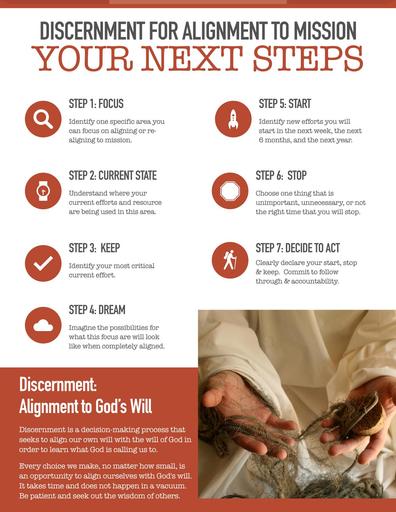There is a cost of discipleship — Jesus sometimes calls us to leave behind professions, friends, even family. Does that mean that work and human relationships are at odds with growing in our relationship with God? The concept of detachment can help us understand this problem.
Jesus calls us to put God first, above everyone and everything else. And that’s really the point of the virtue we call “detachment.” Detachment is the opposite of attachment. If we get too attached to someone or something, we cannot let that person or object go, even when such letting go is necessary. We must be detached enough from other people and possessions, Jesus insists, that they cannot interfere with following God’s will.
Dr. Marcellino D'Ambrosio uses the apostles as an example of the detachment needed for discipleship:
Peter and Andrew were businessmen. So were their neighbors James and John. They tried to wring a living out of the Sea of Galilee, and it probably took nearly all of the time and energy that they had. So it would have been easy to pass on the chance to hear some new prophet proclaim that the kingdom of God had finally arrived. And then, having heard this message, they could have rolled their eyes and chuckled about how they hoped that this kingdom would put more fish in the lake.
Or they could have made excuses that this was all very interesting but following the wandering rabbi from Nazareth was more suitable for single men with no mouths to feed.
No, when Jesus invited them to learn to catch men instead of fish (Mk 1:14-20), they dropped their nets, abandoned their businesses and went on the road.
Is it wrong to have a family? Is it wrong to be in business? Are these secular activities inappropriate for a disciple of Jesus?
Not in the least. The Church teaches that we can serve the Lord and grow in holiness through any honest task, whether we are single or married. But St. Paul also tells us that the Christian engaged in secular activities must inwardly detach from them:
“Let those having wives act as not having them ... those buying as not owning, those using the world as not using it fully. For the world in its present form is passing away” (1 Cor 7:29-31).
The word “secular” means “of this world.” Now it is true that God likes this world. After all, he created it. But when sinful humanity gets ahold of the things of this passing world, it doesn’t want to let go. It becomes engrossed, absorbed, consumed with them, to the neglect of what lasts forever, namely the kingdom of God.
In Jesus, the kingdom has touched down on planet Earth. We need to re-form our lives, which is not only to say repent from sin, but actually structure our lives totally around the kingdom and its priorities.
Kingdom priorities might dictate that many enter into the sacrament of matrimony in order to raise up new heralds of the kingdom and leaders of God’s people. And Christ may call others to involve themselves in business so as to provide financially for God’s work and to infuse Christian values into the marketplace.
Detachment does not mean that you shouldn’t enjoy your secular pursuits and approach them with energy and enthusiasm. It just means that your daily activity must be placed on the altar, offered up to God as a living sacrifice. And you must be ever ready to walk away from your activities at a moment’s notice, should Jesus call you to do so.
Moments of truth will come to test just how serious we are about living for God rather than the three P's that we often p
We may not be called literally to leave all behind to walk the dusty trails of Israel. But there will come a moment when we may hear an invitation to decline a scholarship, or a promotion, or a romance for the sake of the kingdom.
As the Gospel story unfolds, we learn that the apostles had more than a few shortcomings. But we have to admit this -- that when that initial call came, as challenging as it was, they made no excuses.
Can the same be said for us?
Not On Our Own
Our broken human nature, the result of original sin, makes it impossible to give up our attachments to worldly things and comforts. When we center our lives on Jesus and cooperate with his grace, suddenly the seemily impossible task of following the disciples' way of detachment becomes possible.
“For human beings it is impossible,” he said, “but not for God. All things are possible for God” (Mk 10:27).
Growing in the virtue of detachment - like deepening our discipleship of Jesus - is often a gradual process. It involves growing to trust God and his providence, believing that what we need for each day will be provided, and slowly realizing that the four "p"s (power, pleasure, possessions, and pride) do not give us the security we think they will.
To be a disciple of Christ, we have to give everything of ourselves to him and to the tasks our discipleship entails. When we give everything to him, His power works in us and on us so that our detachment leads us to peace and enhances our apostolic work on his behalf.
Consider making an offering of everything you have, of everything you are, to Jesus today in prayer as an act of your discipleship. Then pay attention to the attachments he may be specifically asking you to let go of. Prayer For Detachment
Reflection Questions:
- How is Jesus calling me to follow him more closely within my primary vocaiton (married, priest, consecrated religious or still discerning)?
- What sacrifices or self-denials am I afraid of or do I dread Jesus might ask of me?
- What do I find most difficult to give up for God?
- Who are your friends and closest relationships, and how are they supporting your discipleship relationship with Jesus?
- What is it that He wants you to surrender?


